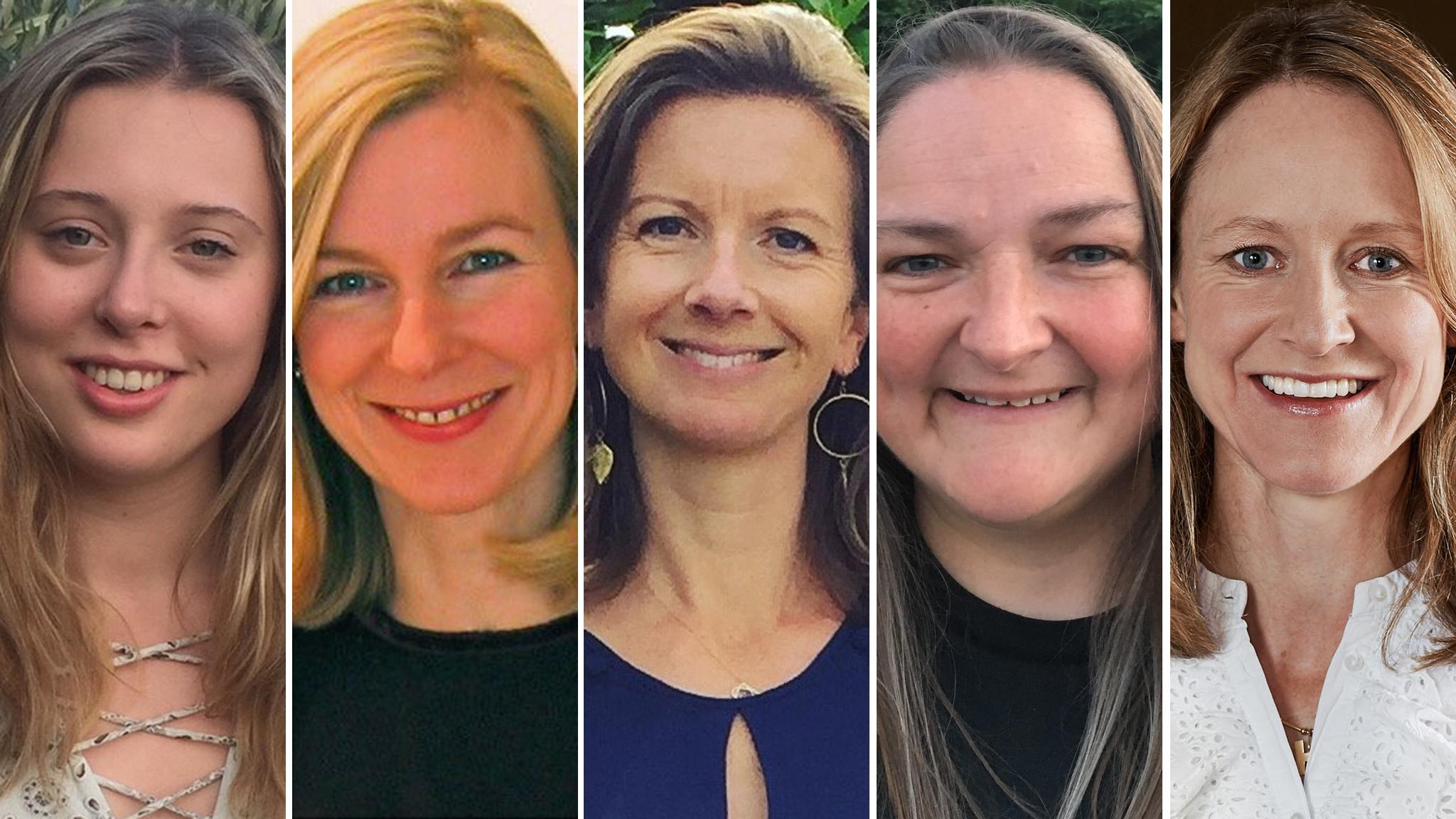Llantrisant: Women now allowed to enrol as freemen
- Published
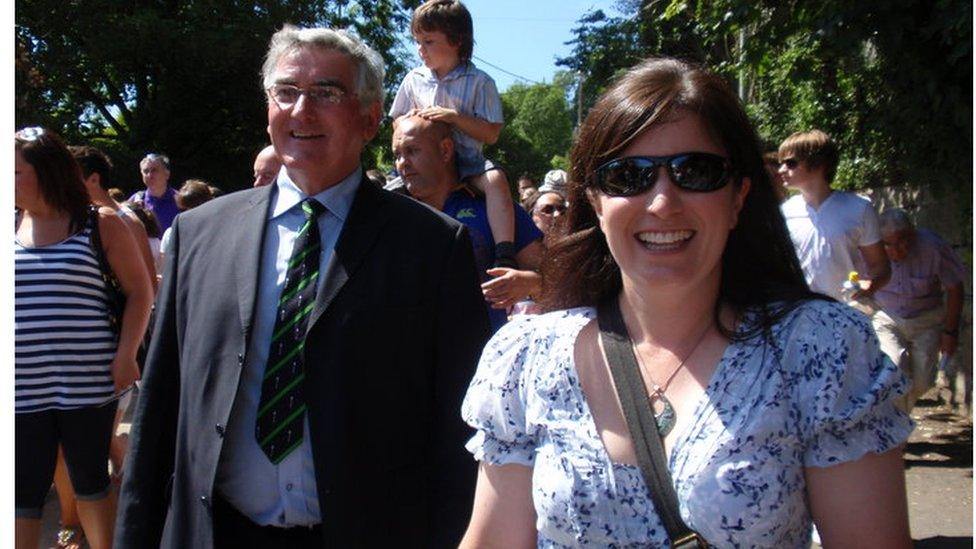
Beating the Bounds happens every seven years
A prestigious tradition dating back to the 14th Century has changed its rules to allow women to join for the first time from May.
For almost seven centuries, the charter allowed only men to become freemen of Llantrisant and the title passed from father to son and son-in-law.
Now, the trust in Rhondda Cynon Taf which manages the land and rights of freemen has said women can enrol.
However some existing members are unhappy with the rule change.
Freemen's rights were set out in the earliest known charter granted in 1346, but the privileges were established around 1,000 years ago.
Historically, freemen have had the right to self-govern the community and hold their own courts of law, as well as being in charge of events and the land.
While they no longer have these rights, the freemen still own the 246 acres of Llantrisant Common, have special grazing rights and play a central role in the community.
Part of the tradition is the Beating the Bounds, which happens every seven years and attracts more than 10,000 visitors as they walk seven miles (11km) around the borough's ancient boundary.
Boundary stones mark the route which goes through Beth Gibbon's family farm.
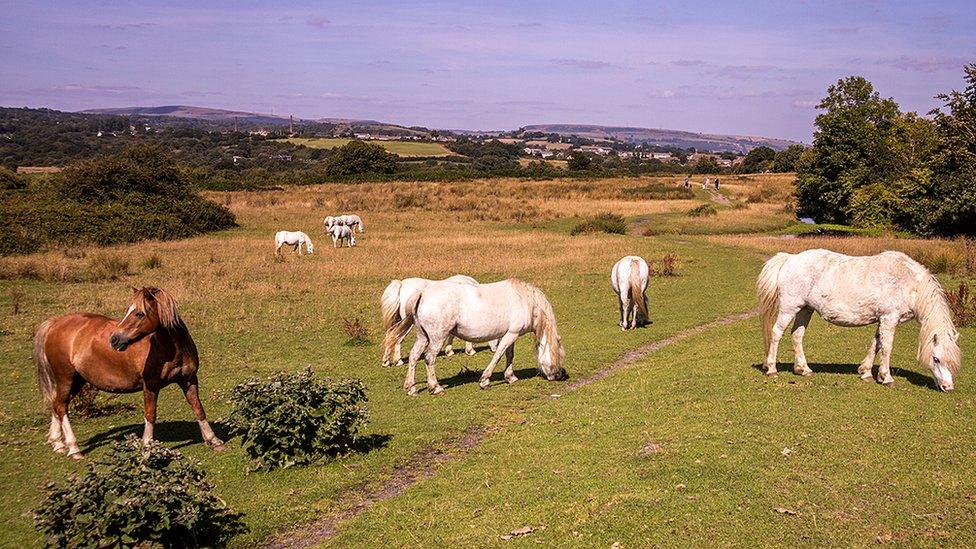
The Common is a Site of Special Scientific Interest due to the tradition of grazing only horses and cattle
The farmer, 45, said: "It's just really exciting now that as a female, I can actually become part of that history and be recorded."
Mrs Gibbon's father and grandfather were all petticoat freemen, meaning they married the daughter of a freeman.
"We can easily find the name of the men in our family through the role of the freemen, but for the women where the actual lines come from, we have to go to local knowledge of the family or the family Bible.
"None of them have ever been recorded.
"But from now on, we will be there in a very easy way to find," she said.
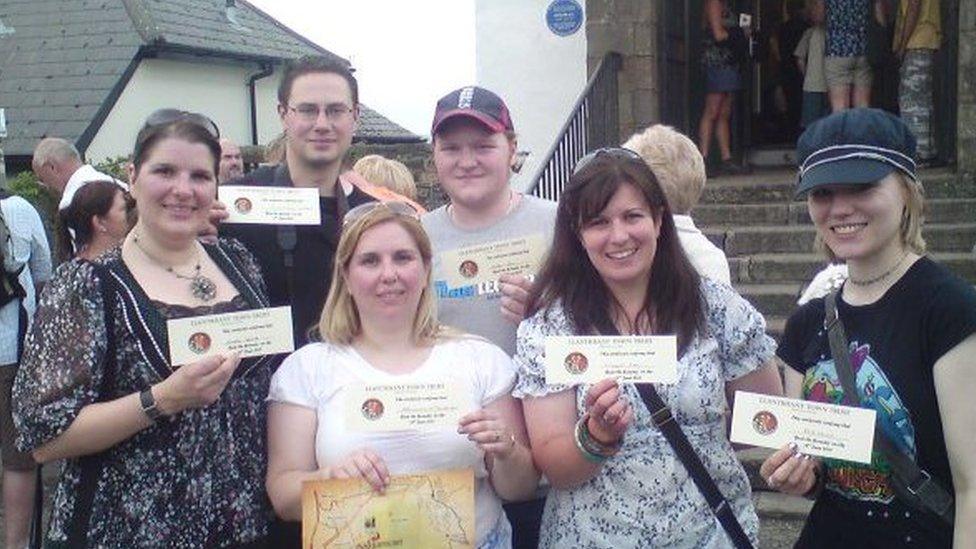
Beating the Bounds is a family occasion for many who come back to the town just for this event
Mrs Gibbon is named after her great-grandmother, and both grandmothers, meaning when her name is placed on the freemen role, her female ancestors who didn't have the right to be freemen will be remembered with her.
"We're starting that generation onwards."
Chris Newland, 75 of Llantrisant has also applied.
"I am very grateful the trustees have felt that in a modern society, things have changed and women can now be made freemen in their own right," she said.
"I started to look at my own family history recently and I can already trace my bloodline back to a man called Richard Rees who was number 308, so he was quite early on their roll. He was made a freeman in 1824."
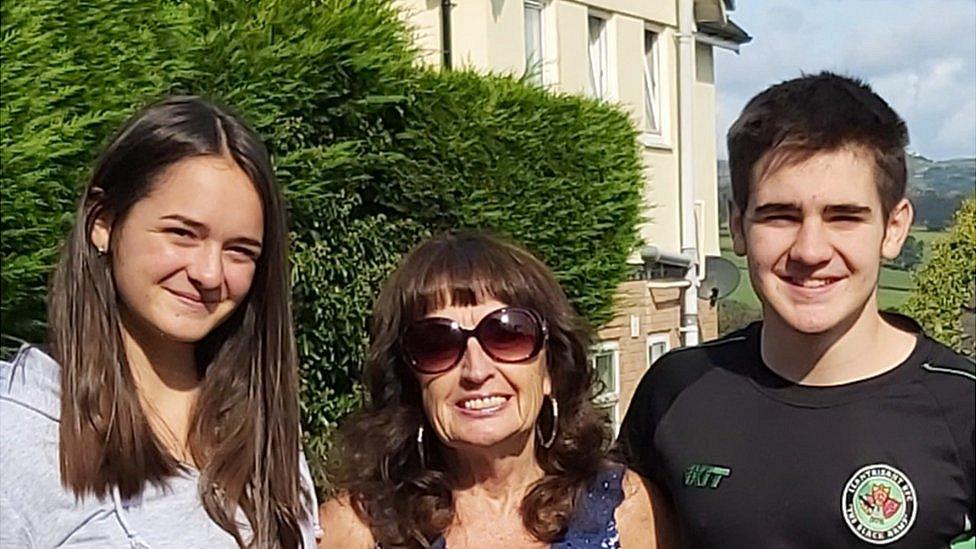
Women will now be able to enrol alongside men at 21
Mrs Newland said she felt being a freeman was especially significant for her because of her grandmother Esther Louisa Page who, along with several other freemen wives, stopped a five-year-long local feud by peaceful protesting the use of The Common as a golf-course.
"So all I can say is 'Thank you Nanny Esther. I hope you are as proud as I am that I will be one of the first women to be enrolled as a freeman and as such can carry on your legacy of protecting The Common.'"
Llantrisant Town Trust's clerk, Dean Powell, explained there were currently 1,280 freemen of Llantrisant, with members across the world including Japan, America and Australia.
"They're obviously not going to graze their animals there, but for a lot of people who enrol, there's a sense of a connection to the town where they originated from.
"There's a sense of belonging to it really and it's keeping an old tradition going within their families."
Part of the responsibility of a freeman is to elect new trustees for the town trust who will sit on their behalf and make decisions about the town.
Mr Powell said other towns once had freemen but because they didn't recognise women in the line of succession the tradition died out.
"In Llantrisant we were a bit different because we enrolled son-in-laws, so we recognised the role of the woman even then, we weren't that much of a male dominated town after all."
He said the trust has been asked many times over the years why freemen's daughters couldn't enrol.
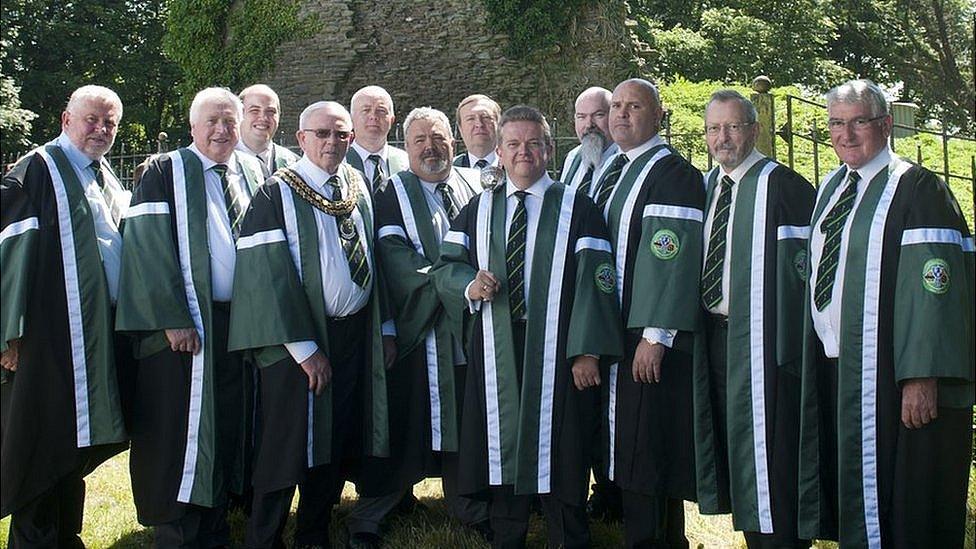
There are 2500 Freemen today, set to increase now women can enrol
"We explained that this is a 1,000 year old tradition, and we don't have to make a decision to make the changes as yet, we didn't think there was a need to.
"The feel is of course, that particularly now, even in the last 20 years society has changed a great deal towards equality.
"At the end of the day, if someone tried to challenge us, and took us to court, that would be incredibly costly.
"We recognise we've just seen the third woman Prime Minister, although admittedly not a very good one, we've just said goodbye to a 70-year reigning monarch.
"It's just getting ridiculous to not encourage women to enrol as well.
"It's always better to move with the times rather than get pushed into it."
Llantrisant town trustees proposed to make the change to the hereditary rights last autumn.
The clerk said not all freemen were happy about the decision, but a special meeting was held and they did not raise an issue in time and the decision has since been ratified by the Charity Commission.

BBC WALES INVESTIGATES: The subjects affecting the lives of people in Wales
A CAREER CHANGE WITH A DIFFERENCE: Police new recruits adapt to life on the beat

Related topics
- Published3 July 2022
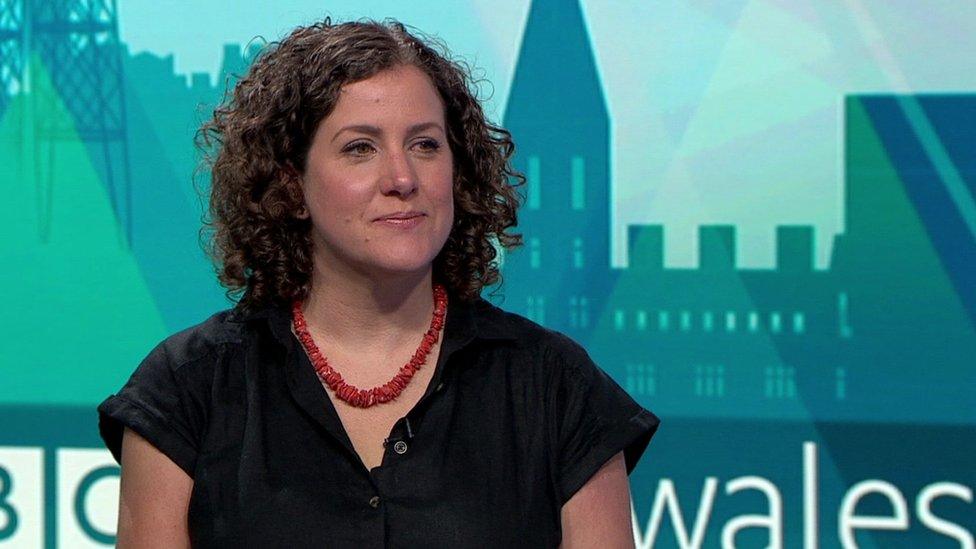
- Published16 July 2018
